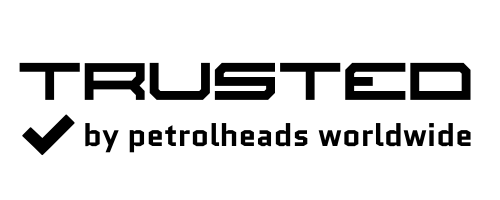New F1 Engine Rules

Porsche and Audi coming to Formula One?
Over the summer break we saw the 2026 F1 engine rules approved by teams. It is a big step towards sustainability for the sport. The benefits of the new engine rules have already begun to show themselves, opening up a path for Audi and Porsche to join the sport.
What are the F1 engine changes for 2026?
Formula One has agreed to new regulations in 2026, with the new rules moving Formula One to a more powerful and sustainable future. There have been a few key points on the engine rules that are very different to the current rules.
The first major change is that Formula One is trying to rely on electrical power more than ever before. The current engines use some electrical power help boost the speeds of the cars. But in 2026, we will see the impact of electrical power increase. The MGU-K which produces electric power for the engine will see a massive boost.
More energy will be collected during braking and so the MGU-K will likely produce three times more electrical power than the old engines. This should help to make these new engines the most powerful in the history of the sport.
Despite this, the new engine regulations also make the cars much more environmentally friendly. From 2026, the F1 cars will run on fully sustainable fuels that have been developed over many years between F1 and Formula One’s fuel partner ARAMCO. The new fuel means that no new fossil fuels will be burned from the engines.
One of the main elements of the rule changes was to try make Formula One more environmentally friendly and it is why there is a lot of rules to do with environmental protection. More of the elements of the engine will be recyclable to make the entire car more sustainable.
Reasons for the 2026 F1 Engine Regulation changes
Formula One needed some big changes in the future as it aimed to become more sustainable. The championship is certainly not great for environmental awareness as the travelling circus of Formula One produces a huge amount of greenhouse gases.
It is why we have seen Formula E attract so many high-profile sponsors and why F1 has not attracted as many high profile sponsors. The sport needed to become more sustainable in the future and these regulations have done exactly that.
When these new regulations come into action in 2026, they will bring back new sponsors as well as making the sport much more attractive to sponsors. Even though we are years away from these rules coming into play, we have already seen the rules attract some new sponsors who are willing to contribute a lot of money to Formula One.
Audi and Porsche joining Formula One
The VW group has shown interest in joining Formula One for a few years, but the issue is that Formula One has not always looked like the most attractive sport to sponsor. Thanks to the 2026 engine regulation changes, Formula One finally looks like a sustainable sport that companies want to join.
Audi and Porsche are two of the biggest auto manufacturers in the world and since the 2026 regulations have been approved, both brands look set to join Formula One as engine manufacturers. Despite both being owned by the Volkswagen Group, the two companies will produce separate engines for Formula One.
At the moment, Ferrari, Red Bull, Mercedes and Alpine all produce F1 engines, with companies like BMW and Honda pulling out in the last couple of decades. But with Formula One engines helping to pioneer sustainable fuels, it has made Formula One look a lot better.
The full input of both Audi and Porsche is still unknown. There has been lots of rumours linking Red Bull and Porsche forming a new partnership, but these rumours have quietened down in the last couple weeks. Audi has been linked with McLaren, but we are yet to see any official announcement.
While their impact is yet to be seen, it will be very exciting to see both companies joining Formula One, as they both have a storied history in motorsport.























































































































































































